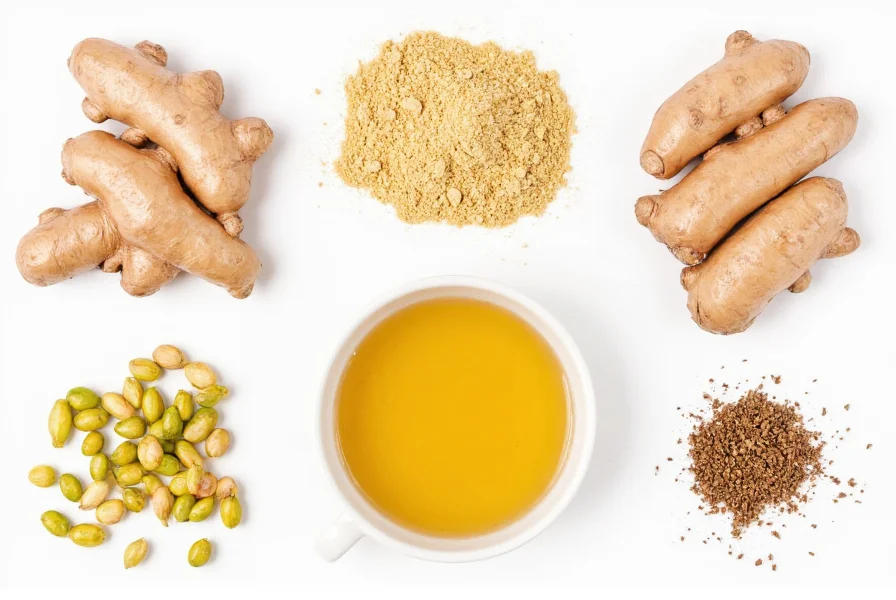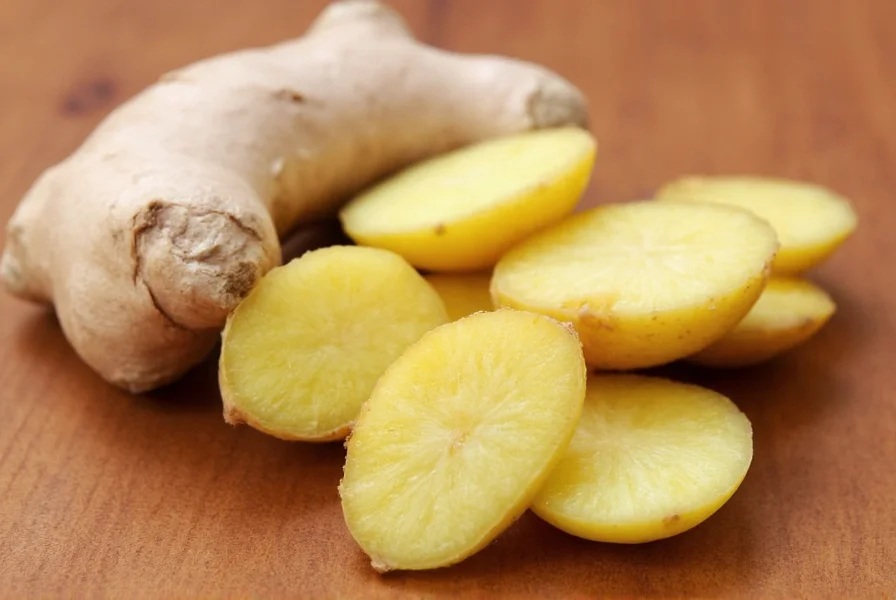For centuries, ginger has been revered in traditional medicine systems worldwide, but modern science is now validating many of its health-promoting properties. This unassuming root contains over 400 distinct biochemical compounds that work synergistically to deliver impressive health benefits. Unlike many wellness trends that lack scientific backing, ginger's therapeutic effects are supported by numerous clinical studies and systematic reviews published in reputable medical journals.
The Science Behind Ginger's Health Benefits
Ginger's primary bioactive compounds—gingerols, shogaols, and zingerone—are responsible for its distinctive flavor and most of its medicinal properties. These compounds demonstrate remarkable biological activity that explains why ginger is good for you. Research published in the Journal of Medicinal Food confirms that these compounds inhibit inflammatory pathways more effectively than some conventional medications, but without the same side effect profile.

Top Evidence-Based Health Benefits of Ginger
1. Powerful Anti-Inflammatory Effects
Ginger's anti-inflammatory properties make it particularly valuable for managing chronic inflammatory conditions. A comprehensive review in Arthritis found that ginger supplementation significantly reduced pain and stiffness in osteoarthritis patients. The mechanism involves gingerols inhibiting the production of pro-inflammatory cytokines and enzymes like COX-2, similar to how NSAIDs work but through more natural pathways.
2. Superior Nausea Relief
When exploring why ginger is good for you, its anti-nausea effects stand out as one of the most well-documented benefits. Multiple clinical trials confirm ginger's effectiveness for various types of nausea:
| Type of Nausea | Effectiveness | Recommended Dosage |
|---|---|---|
| Morning sickness | 70-85% reduction in symptoms | 1-1.5g daily |
| Post-operative nausea | 40-50% reduction | 1g pre-surgery |
| Chemotherapy-induced nausea | 30-40% reduction | 0.5-1g with treatment |
| Motion sickness | 50-60% reduction | 1g before travel |
3. Digestive System Support
Ginger stimulates saliva, bile, and gastric enzyme production, accelerating gastric emptying by up to 25% according to research in European Journal of Gastroenterology & Hepatology. This explains why ginger is good for you when experiencing indigestion or bloating. The root also demonstrates antibacterial properties against H. pylori, a common cause of stomach ulcers.
4. Pain Reduction Capabilities
Studies show ginger supplementation reduces muscle pain by 25% following intense exercise. The Journal of Pain published research indicating that daily ginger consumption lowered osteoarthritis pain by 30% compared to placebo. These effects appear after consistent use over 6-12 weeks, demonstrating why ginger is good for you as part of a regular wellness routine rather than as an immediate painkiller.
5. Blood Sugar Regulation
For those concerned about metabolic health, ginger shows promise in improving insulin sensitivity. A clinical trial in Complementary Therapies in Medicine found that 2g of ginger powder daily reduced fasting blood sugar by 12% and improved HbA1c levels in diabetic patients over 12 weeks. These findings contribute significantly to understanding why ginger is good for you beyond just symptomatic relief.
How to Maximize Ginger's Health Benefits
To experience why ginger is good for you, proper preparation and consumption matter. Fresh ginger contains higher levels of gingerols, while dried or cooked ginger develops more shogaols, which have different but equally valuable properties. For maximum benefit:
- Grate fresh ginger into hot water for tea (steep 10 minutes)
- Add raw ginger to smoothies or juices
- Use in cooking at the end of preparation to preserve active compounds
- Consider standardized extracts (250-500mg) for therapeutic dosing

Important Considerations When Using Ginger
While ginger offers numerous health benefits, it's essential to understand appropriate usage. The recommended daily intake for most adults ranges from 1-3 grams, with higher doses potentially causing heartburn or mouth irritation. People taking blood thinners should consult their physician before regular ginger consumption, as it may enhance anticoagulant effects. Pregnant women should limit intake to 1g daily during the first trimester.
Ginger's safety profile remains excellent compared to pharmaceutical alternatives, but like any bioactive compound, it works best as part of a balanced approach to health rather than a standalone solution. Understanding why ginger is good for you involves recognizing both its impressive benefits and appropriate usage parameters.
Conclusion: Ginger's Place in Modern Wellness
The scientific validation of ginger's health properties explains why this ancient remedy remains relevant today. When evaluating why ginger is good for you, the evidence points to its multi-system benefits with minimal side effects when used appropriately. Incorporating ginger into your daily routine—whether as tea, in cooking, or as a supplement—provides a natural approach to supporting overall wellness backed by increasingly robust scientific research.
Frequently Asked Questions
How much ginger should I consume daily for health benefits?
For general health benefits, 1-3 grams of fresh ginger daily is recommended. This equals about a 1-inch piece of raw ginger root. For specific conditions like nausea, 1-1.5 grams may be sufficient, while anti-inflammatory effects often require consistent daily intake of 2 grams for several weeks.
Can ginger help with weight loss?
Research suggests ginger may support weight management by improving metabolism and reducing inflammation. A study in Metabolism found that ginger supplementation reduced waist-to-hip ratio and insulin resistance in overweight participants. However, ginger works best as part of a comprehensive weight management plan including diet and exercise.
Is fresh ginger more effective than powdered ginger?
Both forms offer benefits but contain different active compounds. Fresh ginger has higher gingerol content, while dried/powdered ginger contains more shogaols, which form when gingerols are heated or dried. Shogaols are more potent anti-inflammatories but less effective for nausea. For comprehensive benefits, use both forms in your diet.
Can ginger interact with medications?
Yes, ginger may interact with blood thinners like warfarin by potentially enhancing their effects. It might also affect diabetes medications by lowering blood sugar. If you take prescription medications, particularly for blood clotting or diabetes, consult your healthcare provider before consuming therapeutic doses of ginger regularly.
How long does it take to feel ginger's health benefits?
For acute issues like nausea, benefits can be felt within 30-60 minutes. For chronic conditions like inflammation or pain, consistent daily use for 4-12 weeks is typically needed to notice significant improvements. The anti-inflammatory compounds build up in your system over time, which explains why regular consumption yields better results than occasional use.











 浙公网安备
33010002000092号
浙公网安备
33010002000092号 浙B2-20120091-4
浙B2-20120091-4